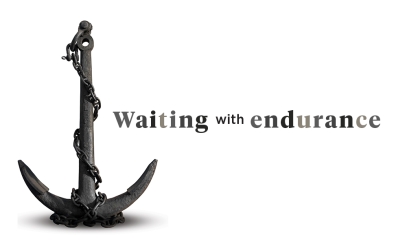Discern God’s will in your life
One of the more interesting (to me) parts of Christus Vivit, the letter on young adults sent out by Pope Francis, deals with discernment. This is found in chapter nine. The Holy Father notes that we are in a culture of “zapping.” Age must be catching up with me but this is an unknown term to me. His point is that we are simply responding to any stimulus out there and not really reflecting on it.
Any discernment is about figuring out God’s “unique and mysterious” plan for each one of us. But we must start with this truth: Jesus is a friend who wants only what is really best for us. If we don’t start here, then we will not hear God’s voice in our hearts or if we do hear it, we will fight it. In the same way that we always want what is best for those we love, so God only wants what is best for us.
If our hearts and minds really believe this, then we can move on to the second stage. Here we need lots of silence and prayer. Why is this so? Because coming to know the will of God for me means I have to listen, and listening takes practice and silence. To what shall we listen? First of all, we need to listen to the yearnings of our own hearts. There is great truth to be found there. God plants those yearnings. Now to be sure that our hearts are leading us the right way, we need to have confidence that our hearts are not corrupt. We are all sinners and thus we are easily tempted to seek things and yearn for things that are not really good for us. That is why we need to make sure that we have our hearts formed by God, by his Church, by the Scriptures. These will help us purify our hearts and listen to their real yearnings.
Second, we need to listen more attentively to the voice of God, present through the Scriptures and in prayer. No real discernment can take place without spending a good amount of time in prayer, being attentive to the very love of God for each of us individually, and being attentive to God’s direct presence to us and in us. God will speak to us if we really want to know his will for us. If we are really only interested in knowing God’s will so we can decide later if we want to follow it, we will never really hear God’s voice. We need complete openness to God and a willingness to follow the Spirit where he would lead us.
Third, we need to listen to others. Those who truly care for us and for our good, those who themselves seek to know God’s will in their own lives, can offer us an objective, outsider’s view of ourselves. Pope Francis even tells us that we waste a lot of time asking ourselves, “Who am I?” Instead, we need to ask ourselves, “For whom am I?” Others can help us see the answer to this last question. The Holy Father continues, “Of course, you are for God. But he has decided that you should also be for others, and he has given you many qualities, inclinations, gifts, and charisms that are not for you, but to share with those around you.” (#286)
In the end, discernment of God’s will for us eventually places before us a choice. Will we follow Jesus or will we not? If we have truly been practicing the kind of listening discussed above, the choice will be easy. Living out that choice will not necessarily be easy. However, we have the confidence that God does not ask of us something for which he does not also provide the grace to do. Frankly, this discernment process is not limited to the times of our youth. We should be discerning God’s will for us till the day we die. But each time we should trust the Lord who loves us and take the leap to do that. Each life will entail many leaps, each one being a leap of faith.



